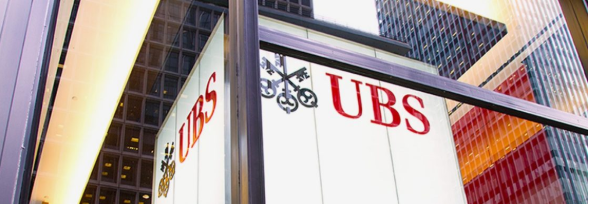High-profile investment banker Matthew Grounds, head of Swiss multinational investment bank and financial services company, UBS Group in Australia and New Zealand, has announced his departure by the end of the current year, after more than a decade of serving as the Chief Executive Officer. This marks the end of his glorious journey with UBS as he hands over the reins of running UBSâ well-established Australian business to Co-Chief Executives Anthony Sweetman and Nick Hughes.
Mr Grounds has provided his advice and expertise to billionaires, several high net worth and affluent individuals and corporates around the world and handled some landmark deals for domestic and international companies, especially after the global financial crisis. He is leaving behind a tremendous legacy due to which global as well as local clients look up to UBS to manage and grow their wealth. Over the years, many leading companies and institutions in over 50 countries have counted on UBS to offer them financial resources, expertise and infrastructure.
Mr Grounds has spent over 25 years of his life working at UBS. Under his leadership, UBS Australia has enjoyed the distinction of being a dominant investment bank. With that backdrop, he is stepping down at an appropriate time when the Bank is at a great place, both financially and business wise, paving way for the next generation of leaders.
Upon enquiring about his future plans, the star investment banker stated that he would take some time off and then pan out his next step, as reported by various media houses. For Mr Grounds, the current opportunity is to concentrate on closing the going year strongly, assisting the Bank and the clients, as well as Mr Sweetman and Mr Hughes to have an orderly transition into their respective roles.
In addition to working assiduously with his wit and charm on keeping UBS at or near the top of the investment banking league tables, Mr Ground also ventured out into philanthropy as he became a Board member for the NSW-based Victor Chang Heart Foundation, where he took up the role of Chairman and immensely contributed in setting up the Sohn Hearts & Minds investment conference, which had raised millions of dollars for medical research.
Lately, UBS has witnessed a couple of high-profile exits in addition to this one. The ultra-low interest rates prevailing in the global markets is throwing a challenge for the international banking sector, and this has had ramifications for other leading European Banks including Deutsche Bank, headquartered in Frankfurt, Germany. Immediately within hours of its restructuring announcement on 8 July 2019, Deutsche Bank laid off various employees, especially from the equities division in Sydney and Hong Kong. Various foreign banks are bolstering their local operations especially after the Royal Commission inquiry into financial sector misconduct.
With all that happening in the global banking sector as well as the changing global macro environment, Mr Grounds still believes there remains opportunities to look out for in this sector. According to UK-based Dealogic, the highest fee-earning investment bank in Australia in 2018 was UBS, which generated around USD 219 million in revenues and accounted for ~12.5% of the market share, leading ahead of Macquarie and JP Morgan.

Source: UBSâ Website
Recently, the UBS Group has delivered a resilient first quarter ended 31 March 2019, reporting profit before tax (PBT) at USD 1.5 billion and adjusted PBT at USD 1.6 billion. The Group's adjusted cost/income ratio was at 77.9 percent, with operating expenses decreasing by 9 percent accompanied by a 12 percent decrease in operating income because of the challenging market scenario and a very solid previous-year performance.
UBSâs capital position remained solid, with a CET1 capital ratio of 13.0 percent, a CET1 leverage ratio standing at 3.8%, a fully applied tier 1 leverage ratio3 of 5.4 percent, and total loss-absorbing capacity of US$87 billion.
Moreover, UBS Group AG has been under pressure since a year as its share price slashed by more than 26%.
As per the outlook given by the UBS Group, its latest quarterly report, the Bankâs overall pace of growth has evidently decreased amidst a synchronized global slowdown. While the recovery will happen at different speeds across regions and asset classes, the Board has stated that business would benefit from this environment due to extensive regional and business diversification.
The Board recapitulated that higher invested assets are expected to lead to an increase in recurring revenues in Global Wealth Management and UBS will continue to execute its strategy with discipline, focusing on balancing efficiency and investments for growth.
The second quarter results are expected to be released by 23 July 2019.
The pan-European financial sector is trying hard to remain profitable and struggling to thrive especially after the global financial crisis in 2008. A large-scale restructuring is ongoing across various domestic and international European Banks ever since.
Importance of Management in a Bankâs Performance - Human Resource Management is important for banks because banking is a service industry and efficient risk management may not be possible without efficient and skilled manpower. The role of a bank Chief Executive Officer (CEO) is extremely instrumental in driving the business and supervising all aspects of a bank's operations and procedures. A CEOâs expertise is diverse to the extent that it allows him/her make decisions in the best interest of the board of directors, employees and customers.
Unlike their predecessors, the CEOs in the twenty first century are confronted with an altogether different challenge amidst globalisation, technological advancements, global economic uncertainties and slowdown, and a majority of millennial workforce who have high expectations about the conduct and working of the companies that they work for.
As a result, CEOs are concentrated and striving to develop workplaces that are forward-thinking, nurturing, inclusive as well as values-based to have the appropriate talent and retain the same. In addition to that, the regulatory bodies in the financial sector are also paying more close attention to issues around governance, reputation and culture than they ever did before, say in the pre-global financial crisis period. This has further escalated the pressure and puts a plethora of responsibilities on the CEOs, who are striving to ensure that companies are treating customers fairly, meeting their community development obligations and not taking shortcuts to meet profit targets.
Disclaimer
This website is a service of Kalkine Media Pty. Ltd. A.C.N. 629 651 672. The website has been prepared for informational purposes only and is not intended to be used as a complete source of information on any particular company. Kalkine Media does not in any way endorse or recommend individuals, products or services that may be discussed on this site. Our publications are NOT a solicitation or recommendation to buy, sell or hold. We are neither licensed nor qualified to provide investment advice.




